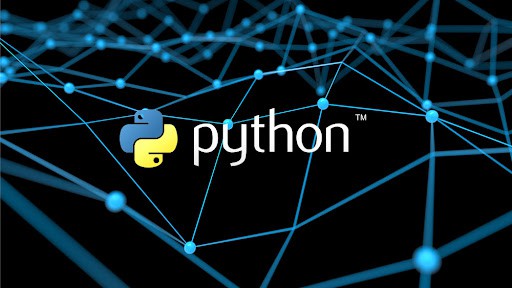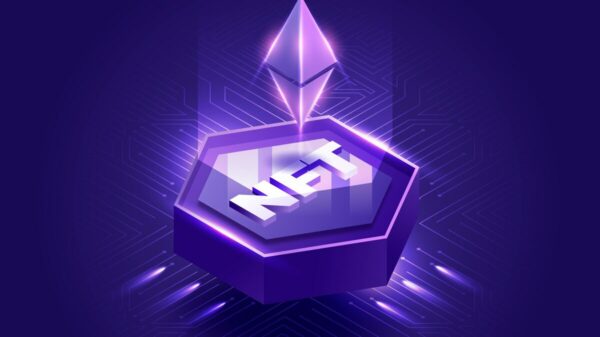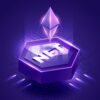The blockchain system consists of a distributed database that allows direct transactions between two parties without the involvement of an intermediary. The building of a Blockchain is accomplished by a programming language that works best with data sets, such as Python.
Even though blockchain is written in C++, many data scientists and developers choose to use Python or other programming languages to create their blockchain. Learning Python will give you the edge over other programmers to work in this industry.
Python has emerged as a popular choice for building blockchain applications due to its simplicity, flexibility, and robustness.
In this blog post, we will explore the potential of Python in the future of blockchain development. As more businesses adopt blockchain technology to improve their operations or launch new products/services, it’s essential to understand how Python fits into this ecosystem.
Python: The Preferred Language for Blockchain Development
Python’s popularity in web development and AI and machine learning is widely known. Some of the best frameworks for web development and AI and machine learning development are supported by Python.
Python has become the preferred language for blockchain development due to its simplicity, readability, and versatility. Its intuitive syntax makes it easy to learn, while its wide range of libraries and frameworks makes building blockchain projects a breeze.
One of the main advantages of using Python in blockchain development is its simplicity. The clean code structure ensures that developers can easily understand the logic behind their programs, making debugging easier and more efficient. Additionally, Python’s readability means that other developers can quickly grasp your codebase without much difficulty.
Versatility is another significant benefit of using Python in blockchain development. It supports different programming paradigms such as object-oriented or functional programming styles which provide flexibility when working on complex projects like smart contracts.
Moreover, Python boasts an extensive library support system with many available libraries for developing various aspects of a blockchain project including cryptography and peer-to-peer networking protocols. This reduces development time significantly while also ensuring high-quality output.
As the demand for blockchain technology grows exponentially across all industries; so does the need for robust languages like Python to develop decentralized applications (dApps) efficiently.
Evolving Blockchain Landscape and Python’s Adaptability
As new trends and frameworks emerge, Python proves its adaptability, cementing its position as a leading language in this dynamic domain.
The blockchain landscape is constantly evolving, with advancements like decentralized finance (DeFi), non-fungible tokens (NFTs), and blockchain interoperability taking center stage. Python rises to the occasion, seamlessly adapting to the changing needs of blockchain development.
Python’s flexibility allows developers to effortlessly integrate with different blockchain frameworks and protocols. Whether it’s Ethereum, Hyperledger, or other emerging platforms, Python provides the tools and libraries necessary to interact with diverse blockchain ecosystems.
Moreover, Python plays a vital role in supporting the interoperability of blockchain networks. Its ability to communicate and connect with various blockchain protocols enables seamless data exchange and collaboration between different networks, fostering a unified blockchain ecosystem.
With its extensive library support and cross-platform compatibility features like Web3.py and Py-EVM, bridging between networks becomes more seamless than ever before.
Smart Contracts and Python: A Powerful Combination
Smart contracts are self-executing programs that run on a blockchain network, automating the execution of contractual terms between parties. They have become an essential part of blockchain technology and Python has emerged as a powerful language for building smart contracts.
Python’s role in developing smart contracts is significant as it provides developers with frameworks like Solidity and Vyper. These frameworks allow developers to write code for Ethereum-based smart contracts while leveraging the simplicity, readability, and versatility of Python.
Moreover, using Python for smart contract development offers several advantages such as code readability and ease of debugging. Its clean syntax makes it easy to understand the logic behind your program; making it less prone to errors or security vulnerabilities compared with other languages.
Another advantage of using Python for developing smart contracts is its extensive library support system which ensures quick development times while also ensuring high-quality output.
By leveraging Python’s power, developers can unlock the full potential of smart contracts. From financial transactions to complex supply chain processes, Python enables the creation of robust and efficient smart contracts that revolutionize industries and drive innovation.
Python-Based Blockchain Projects and Platforms
Python-based projects and platforms have become increasingly popular in the blockchain industry due to their simplicity, robustness, and versatility. Many blockchain startups are using Python to build innovative solutions that leverage the full potential of this revolutionary technology.
One example is ChainGuardian, a platform built on Python that provides real-time monitoring of blockchain networks for security threats. Another is OpenBazaar, which allows users to buy and sell goods on a decentralized marketplace powered by Python.
Python’s extensive library support also makes it an ideal language for developing blockchain frameworks like Hyperledger Fabric. This framework provides developers with the tools they need to build enterprise-grade distributed ledgers while leveraging Python’s flexibility and scalability features.
Many cryptocurrency exchanges such as Binance, and Bitfinex use Python libraries like PyCurl & Requests which allows seamless integration with their trading engines and makes it easier for traders to execute trades faster than ever before.
Python-based projects and platforms offer unparalleled advantages when building decentralized applications (dApps). With its intuitive syntax coupled with robust libraries & frameworks, developers can easily create cutting-edge solutions that cater to various industries while offering transparency, efficiency & automation.
Future Prospects and Innovations in Python-Blockchain Integration
The integration of Python and blockchain has already brought significant innovations to the industry, but there are even more exciting developments on the horizon. To exploit these opportunities, businesses are tapping the talent from the best Python development companies in the USA, Eastern Europe, and India.
Emerging technologies such as privacy-preserving smart contracts, sharding for scalability, and zero-knowledge proofs for enhanced security are driving Python’s future in blockchain development.
Python-based solutions are also leading the way when it comes to improving privacy within blockchain networks. Innovations like zk-SNARKs (Zero-Knowledge Succinct Non-Interactive Arguments of Knowledge) allow transactions to be verified without revealing any personal information about those involved.
Furthermore, advancements in scalability through techniques like sharding will enable Python-based blockchains to handle an ever-increasing number of transactions while maintaining network efficiency.
Looking ahead, we can expect further enhancements in areas such as decentralized finance (DeFi), non-fungible tokens (NFTs), and other applications that could potentially revolutionize industries across the board. With its flexibility and versatility; Python is well-positioned to continue playing a central role in shaping these innovative developments.
Conclusion
Python has emerged as a powerful language in blockchain development. Its versatility, adaptability, and robustness make it an ideal choice for developing decentralized applications (dApps) that leverage the full potential of blockchain technology.
From smart contracts to privacy-enhancing innovations; Python-based solutions are leading the way with cutting-edge developments that cater to various industries while offering transparency, efficiency & automation.
As we move into the future, we can expect even more exciting innovations from Python in the blockchain space. Developers and businesses alike have a wealth of opportunities available to them when working with this powerful language.
So, embrace Python’s power, ride the wave of blockchain innovation, and unlock the limitless possibilities that lie ahead.
Siya Carla is IT Solution Consultant at Finoit Technologies, a leading custom software development company in usa which turns ideas into reality by providing unique web design and mobile app development services. By creating intuitive, user-friendly, and interactive apps for more than 450 customers throughout the globe, we enjoy a great reputation as a customer-friendly mobile application development company in the market.
























































































































































































